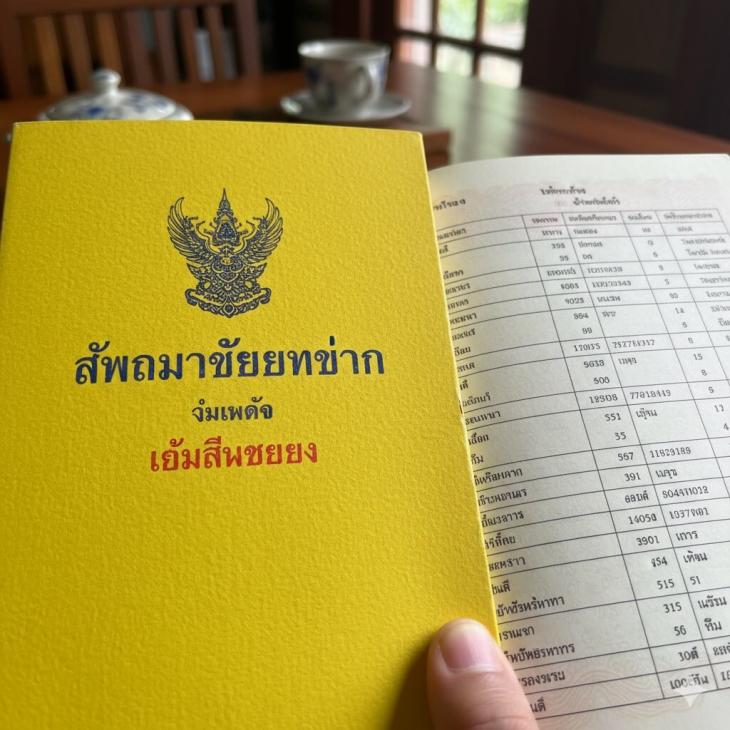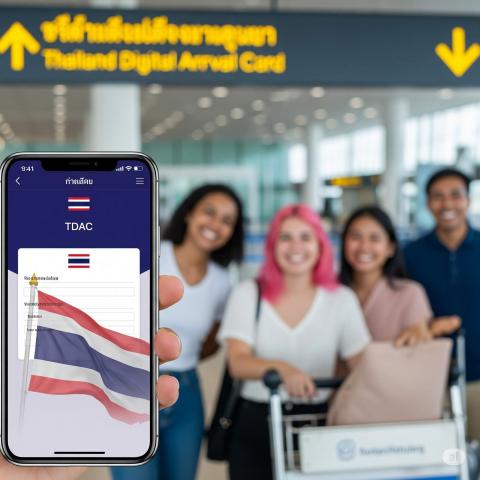If you are a foreigner living long-term in Thailand, you have likely encountered situations where you need official proof of your address. Whether for opening a bank account, buying a vehicle, or dealing with immigration, the question of formal residency often arises. The solution for many expatriates is a crucial document known as the Thai House Book, or Tabien Baan.
However, it's vital to understand that there are two distinct types: the Blue House Book for Thai citizens, and the Yellow House Book, which is specifically designed for foreigners. This guide will demystify the Yellow House Book, explaining what it is, what it isn't, and how you can obtain one to make your administrative life in Thailand significantly easier.
What is a Thai House Book? The Critical Distinction for Foreigners
First and foremost, it is essential to clarify the primary function of a Tabien Baan. A Thai House Book is a resident registration document, not proof of property ownership. This is the single most important point of confusion for many foreigners.
The document that proves legal ownership of property (like a condo) is the Title Deed, most commonly known as the Chanote. The Tabien Baan simply registers who lives at a specific address. Both documents are issued by the local District Office, known as the Amphur (or Khet in Bangkok).
The Yellow House Book (Thor Ror 13): Your Official Address in Thailand
The specific version of the house book for non-Thai nationals is the Yellow House Book, officially named Thor Ror 13 (ท.ร. 13). Its sole purpose is to officially register a foreigner's place of residence within the Kingdom of Thailand.
Generally, foreigners who hold a valid long-term, non-immigrant visa (such as a retirement, marriage, education, or business visa) and have a fixed address are eligible to be listed in a Yellow House Book. This applies whether you live in a property owned by a spouse or in a rented property, though the latter requires the landlord's full cooperation.
Step-by-Step: How to Apply for a Yellow House Book in Thailand
While the process is straightforward, it requires careful preparation. Here is a step-by-step guide to follow:
- Confirm Requirements with your Local Amphur: It is a wise first step to call or visit your local Amphur to confirm their specific list of required documents and any unique procedures, as these can vary slightly between districts.
- Gather the Necessary Documents: Prepare all required paperwork for yourself, the property owner, and your witnesses. A complete checklist is provided in the next section.
- Visit the Amphur with Witnesses: You will typically need to be accompanied by two Thai witnesses. The "house master" (usually the Thai property owner) must also be present to provide consent.
- Submit the Application and Interview: An officer will review your complete application. Be prepared for a short interview where they may ask about your visa status and residency.
- Issuance of the Yellow Book: If all documents are in order, the processing time can be swift, sometimes as quick as a few hours. The officer will then issue your official Yellow House Book.
Document Checklist: What You Need for Your Application
Having your documents perfectly in order is the key to a smooth application process. Here is what you will generally need:
Applicant's Documents:
- Your original Passport and signed photocopies of the main information page, your current valid visa, and the latest entry stamp.
- Your original Work Permit (if applicable), with photocopies.
- Marriage Certificate (if applicable), which must be officially translated into Thai.
- Several recent passport-sized photographs (typically 1x1.5 inches).
Property & Owner's Documents:
- The original Blue House Book (Tabien Baan) of the property.
- The Thai National ID card of the property owner/house master (original and signed copy).
- The property's Title Deed (Chanote) or Sale and Purchase Agreement.
- A signed letter of consent from the Thai owner of the property.
Witnesses' Documents:
- The original Thai National ID cards of your two witnesses (with signed copies).
Need certified translations of your documents? Our Notary Services can ensure all your paperwork is correctly prepared and legally compliant.
The Top 5 Benefits of a Yellow House Book for Expats
So, why go through this process? Obtaining a Yellow House Book provides several tangible benefits that answer the question, "Why should I get this?":
- Simplifies Proof of Address: It serves as your permanent proof of address, removing the need to get a Residence Certificate from Immigration for many administrative tasks.
- Easier Vehicle Purchase & Registration: It is often required, and always highly recommended, when buying a car or motorbike in your name.
- Streamlines Getting a Thai Driver's License: The Yellow Book is accepted as proof of address when applying for or renewing a Thai driver's license.
- Aids in Opening Bank Accounts: While policies vary, presenting a Yellow Book is preferred by many banks and can simplify the process of opening an account.
- Prerequisite for a "Pink ID Card": The Yellow Book is the key document needed to apply for the pink Foreigner's ID Card, which can then be used as a primary identification document within Thailand.
Frequently Asked Questions (FAQ)
Is the Yellow House Book proof that I own my condo?
No. This is the most critical point to remember. The Yellow Book proves you reside at the property, not that you own it. The Chanote (Title Deed) is the sole document proving ownership.
Can I get a Yellow Book if I am renting?
Yes, this is possible. However, it requires the complete and willing cooperation of your Thai landlord, who must act as the house master and provide their personal and property documents for your application.
Do I need a Permanent Residency (PR) visa to apply?
No. You do not need to be a Permanent Resident. A valid long-term, non-immigrant visa is generally sufficient to qualify.
Does having a Yellow Book exempt me from the 90-day report?
No, absolutely not. You must continue to comply with all of your visa's immigration reporting requirements, including the 90-day address report.




